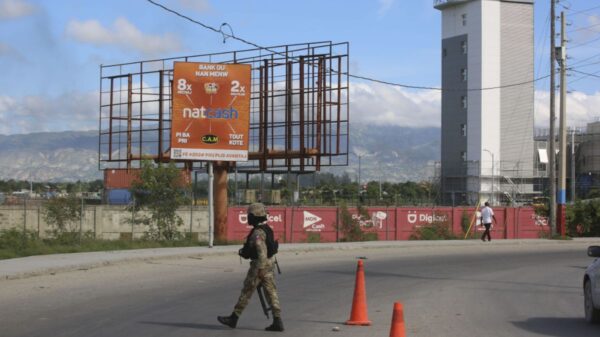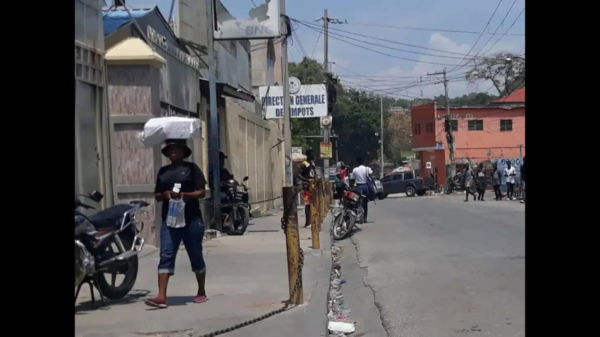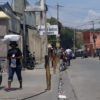By The Haitian Times

From the beginning of 2021 until its very end, this oft-repeated question came up over and over, every few weeks in the Haitian diaspora. Facing a litany of disasters, all eyes are turned to the Haitian diaspora for a way out.
We agree wholeheartedly. It’s past time for Haitians abroad to take a real role in solving Haiti. A role that is pragmatic, based on the realities on what we can support and what Haitians really need. A role that is sustainable in the long term for both Haitians in the diaspora and those in Haiti.
First, let’s address those who say “Ah, Ayiti fini.” Haiti is doomed, That’s completely understandable — and fair — to feel discouraged. It’s been a lot, especially this year. From January, when kidnap-for-ransom cases began setting record highs, to the summer assassination of Jovenel Moise and migration border crisis, and until now, with gangs controlling the capital and literal explosions in the north, Haiti has stayed at the top of news cycles worldwide year-round. All of that takes a toll – physically, emotionally and financially.
But before we lower Haiti’s coffin into the ground, let’s remember this: In every corner of the country, every day, people wake up and do their best to feed their families. They look for ways to live to make it another day and to thrive with what they have. Let’s focus on supporting these real, everyday people — not the ineffectual politicians and incompetent representatives so often seen in the news — who are very much alive. We came across them every day in our coverage this year. We saw those everyday Haitians rendering help during the August earthquake, in young artists being recognized for their craft and in entrepreneurs creating digital connections for loved ones.
So long as they continue to have breath in their bodies, Haiti too will stay alive.
We’re a people with an indomitable spirit and goodwill. Not in the sense of the debunked tropes about resilience, but at a primal, universal level. As humans, who carry on and move forward no matter what lies ahead because giving up is the surest way to die.
Next, it’s easy to pile it on. It is unfair to say that Haiti has been given so many chances that it’ll just squander yet another opportunity to heal itself. Here, it’s important to also remember that Haiti’s story is the story of Black and Brown people worldwide fighting for liberation from the shackles of racist systems. It’s the story of race as a construct, but as a veritable lab where racist ideas have been tested and applied, as our esteemed academics impressed on us during our panel on colorism in February.
Haiti was born with a boot on its neck that’s been squeezing ever since. Only now are we seeing indications that people understand, first of all, that the weight is there. Two, they know that burden must come off for Haiti to breathe. Three, once off, it will take a long time to stand the country up. That shift is only beginning in earnest as most of the world undergoes some form of racial reckoning.
In 2021, the news out of Haiti also brought to us proof of a shift beginning to take place. It’s been a year where centuries-old blinders are starting to come off. Catch-all trite phrases like “political turmoil” and “poorest country in the western Hemisphere,” and even the drug trafficking allegations are being put into context as symptoms of the primary illnesses from which Haiti suffers: Racism/colorism, classism, sexism. Imperialism playing out in real time.
With these realizations just now taking place beyond academia and certain intellectual circles, how can we expect Haiti to up and leap forward without it first getting up?
This is where the “Haitian-led solution” message we’ve been hearing so much about comes in. When the year began, Haitian elected officials made the rounds calling on the United States and other powers to give them a seat at the table of policymaking vis-à-vis Haiti. Well, the powers that be responded. This year, they basically said, “Have the entire table. Let us know when dinner’s ready.”
So that’s the challenge we must meet and overcome as a diaspora. Our brothers and sisters are doing their part with various commissions, and we’ll leave that to them to figure out.
Meanwhile, as Haiti lies on life support, the time is now for Haitians abroad – the country’s de facto middle class – to do a real, clear-eyed pivot. We must turn to different doctors, new medicines such as sustainable models for aid, investment and partnerships. It’s time to look anew at the teeming possibilities that will make Haiti viable in the long term.
The building blocks that will make sure Haiti makes it to another 218 years are not only physical. Yes, we need roads, farming capabilities, electricity, and a functioning security apparatus. The foundation we must shore up is mental and emotional too. It’s a mindset shift to help us see how oppressors – both outside and inside Haiti — are killing our beautiful homeland.
It’s really past time to see the opportunities for solutions and start implementing those at a grassroots level, one day at a time. Collectively, we did it in response to the earthquake in the south when we bypassed big-name donors in favor of grassroots organizations already in the affected communities.
Now, it’s up to each individual Haitian and group to say, “I’m bringing X to the table” in a way that supports not just my relatives, but the entire country. That’s the wake-up call.
Initiatives like the Haiti Tech Summit exemplifies how to engage with the country across multiple years. Haiti Investor Tank, a business challenge to support agriculture, health and shelter, is another that will be interesting to watch unfold as the winners implement their proposals. Organizations like Ayiti Community Trust and Fonkoze offer a different model of support and partnership with Haiti.
At The Haitian Times, we’ve started that work by doing what we do best: Quality journalism. In spring 2022, we’re launching our inaugural Haitian Times Fellowship Program for up-and-coming Haitian journalists based in Haiti. It’s our way of committing to develop this sector to support our very weak democracy, while providing opportunities for young, talented Haitians to build a livelihood doing something they love.
We hope you’ll do the same in your field or area of expertise. We urge you to get serious and start in 2022 with all due urgency however small you can, but with an eye toward having an impact well beyond one year.
Because even though we can take more, we shouldn’t have to, in Haiti or abroad. Not anymore.









You must be logged in to post a comment Login